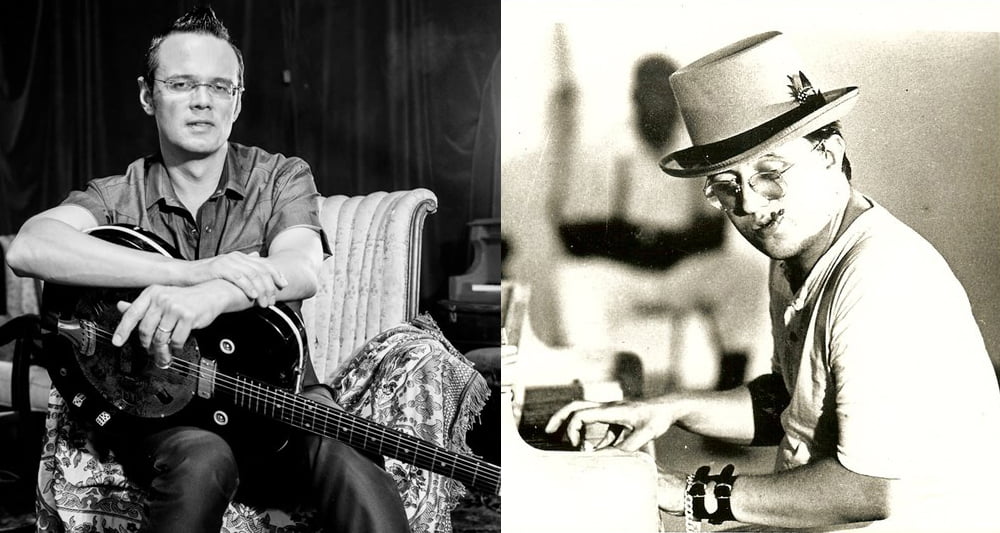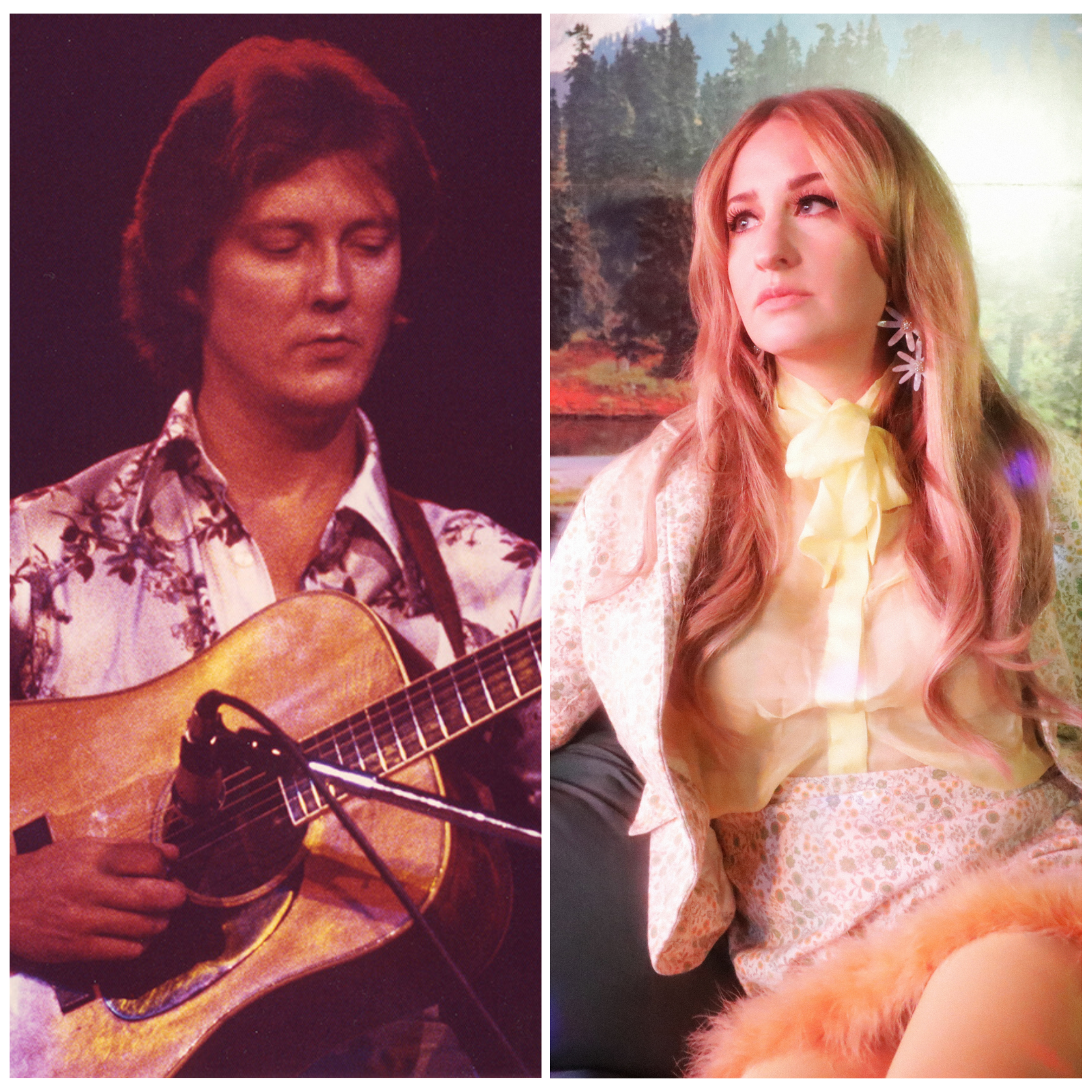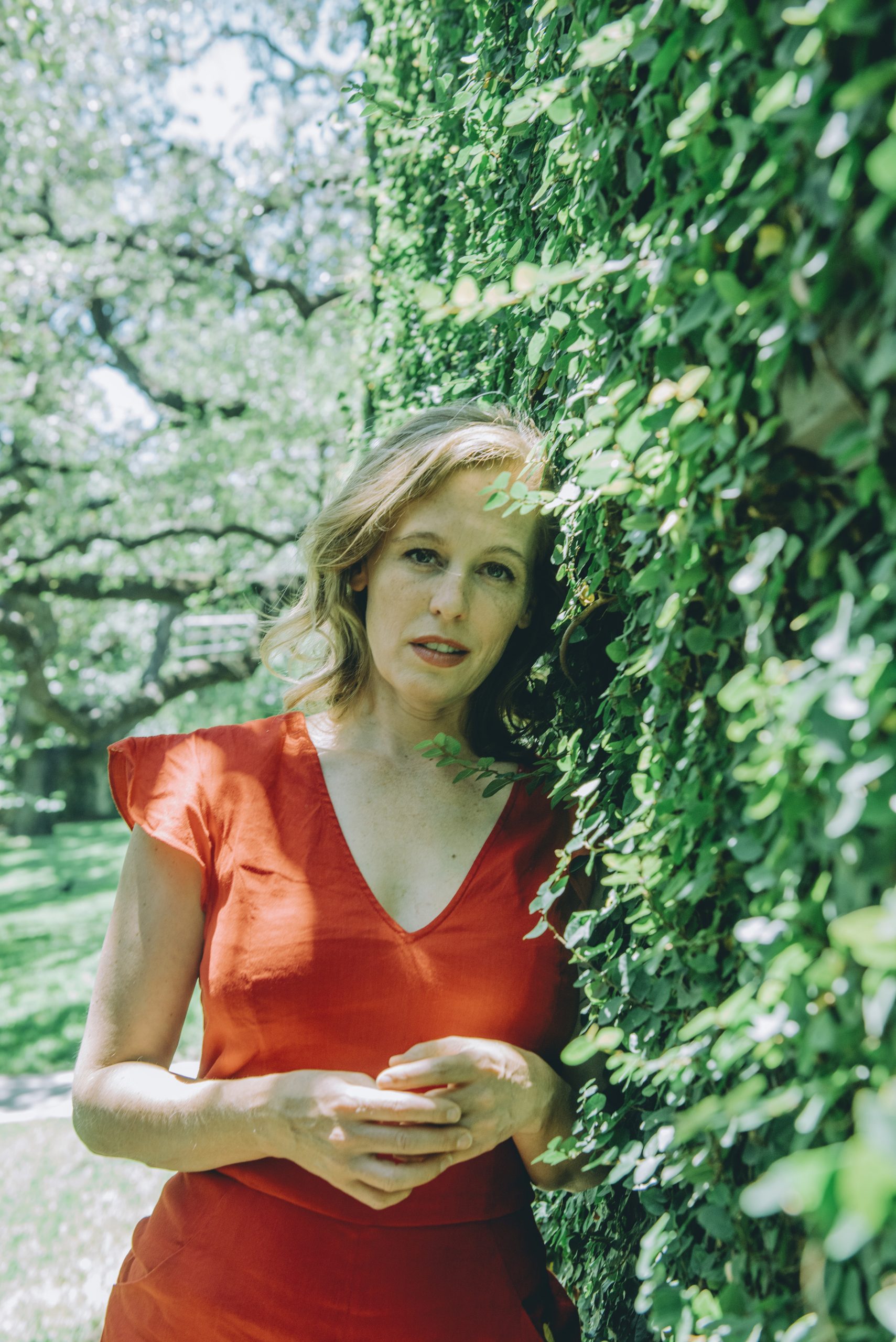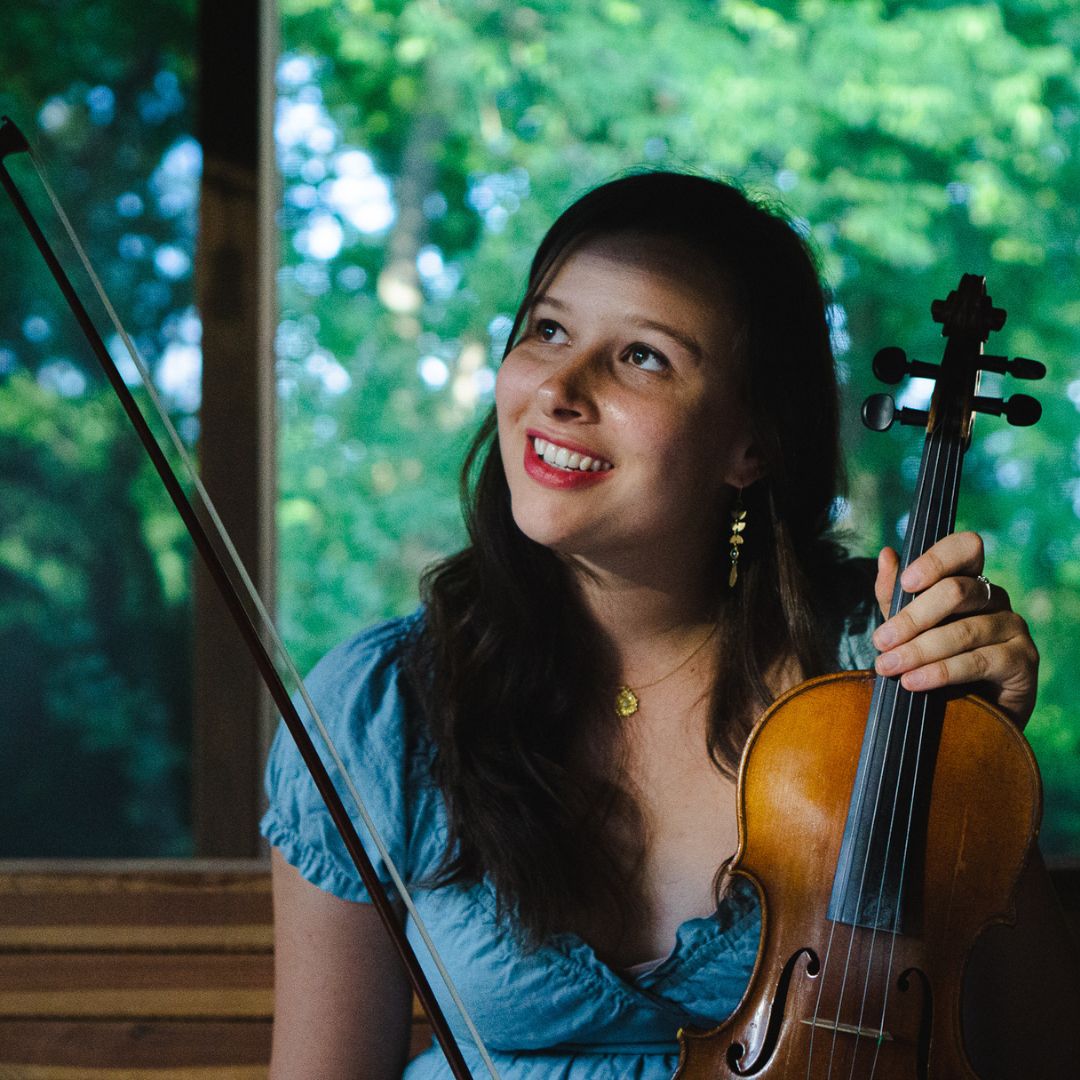Jim Dickinson was a musician’s musician who worked with everyone from Bob Dylan to the Replacements to Sam & Dave. One of his earliest gigs was in the Dixie Flyers, a group much like the cats in Muscle Shoals who backed a multitude of great soul artists on big hits. But, on the advice of Duane Allman, Dickinson jumped ship in 1971 to go it alone. Though he made a few solo records — and various band records, as well — what Dickinson will likely be remembered for is his work as a side player and producer. Whether toiling alongside Ry Cooder or the Cramps, Dickinson always brought a little bit of Memphis with him.
He also passed that same Memphis mojo on to his sons, Luther and Cody. The two have spent the past 20 years as the North Mississippi Allstars, at least when Luther wasn't playing with the Black Crowes, producing records for Otha Turner, or working on solo records, like his recently released Blues and Ballads: A Folksinger's Songbook, Vol. 1 & 2 which finds him carrying on his dad's song collecting tradition.
I'm excited to talk to someone who has first-hand knowledge of the subject at hand. Usually, we're just speculating about “Why do you think Bobbie Gentry slinked away into obscurity?” or whatever. So … your dad was born in Little Rock, grew up in Chicago and Memphis. That's some blues cred, right there.
Yeah!
But he was so much more than just the blues. Did his passions run just as wide, or did he have a secret favorite style that he kept to himself?
You know, he was a song collector. When we were young and he started to teach us — because we were so interested, he said, “Okay, I gotta teach 'em.” He didn't force it on us. He started teaching us his repertoire and each song was a wildly different genre. But it all fell under roots music. There would be a Texas swing song into an R&B ballad to a country-honky tonk number to a blues song or a folk song or a jazz song that we were all struggling to get through. He just loved songs. And he really loved words. He was of a generation that really had its formative years without television, listening to the radio shows. Also, his vision was really bad, and he learned how to memorize what he heard because it was so hard for him to read. He just really had a way with words.
He was just a baby in Chicago … I think he was nine when he moved to Memphis. But growing up in Memphis — for a kid searching for, pre-rock 'n' roll … he'd hear some dixieland or some boogie-woogie that would have that feeling that the whole generation was reaching for. I think this is true of people from all walks of life: You can be a politician or a doctor or an athlete but, in that generation, the American cultures were really reaching for each other and music brought them together. Like on WDIA in Memphis, that's where he heard some R&B and some gospel, then found blues.
In the '60s blues revival, when the blues masters who were living in the South were rediscovered, that really changed everything. At this point, this is post-rock 'n' roll because the rock 'n' roll heyday was really short: Elvis went to the Army. Chuck Berry went to jail. Jerry Lee Lewis went to England. Carl Perkins had the crash. It was a really short explosion, but then folk music came and the song collecting came.
But, then … and this is what was so amazing … just the cultural phenomenon of North and South … the young music lovers from the North, they had the perspective to literally drive to the South and find the blues men and pluck them out of obscurity, rediscover them. Dad, you know, he'd listened to the records, he'd been to the library, he'd read about these men. And, through no fault of his own as a kid, the segregation was such that it took the musicians from the North to come down, to cross those lines. That's a beautiful thing, that perspective. Once that happened, that's when, in Memphis in the mid '60s, there's Furry Lewis, there's Sleepy John Estes, there's Bukka White, there's Reverend Robert Wilkins, there's Fred McDowell. It was unbelievable.
And, in Memphis, dad's generation … they weren't hippies. They were bohemians. They were behind the times. They didn't really like the hippies. They were a little bit older. When the art community and the blues men discovered each other in Memphis, a good time was had by all. [Laughs]
[Laughs] That's part of what I love about his career. He came up with the Dixie Flyers playing on all those great soul tracks with big artists. But he also championed underdogs, and found those folks who were either up-and-coming or somehow lost in the shuffle. He didn't just go for the gold. He really went for the music.
It's true. I think he felt like a bit of an outsider himself. That's part of how he perceived himself which becomes part of how you're perceived. But he left Memphis and went to college in Texas. He was so afraid of the draft, so he ended up going to Baylor because there was no ROTC. [Laughs] He didn't want ROTC. He didn't want fraternities. But he had to go to college to keep from getting drafted, so he went to Texas. When he came back, all of a sudden, he sees what is to become Stax. It took him a while to catch up.
His concept of “Memphis music” was that it was a group of outcasts making music in the middle of the night. And it goes back to Sam Phillips, really, because he was so ahead of his time. Sam Phillips and Dewey Phillips … Dewey Phillips was a disc jockey who would play any genre of music and that's, really, where that comes from. In dad's book that we're just now working on a deal for, he talks about how Dewey Phillips addressed his audience on the radio as “good people.” It was, “Hey, good people.” It wasn't a Black audience. It wasn't a white audience. It was just good people, and he would play any type of music — blues next to Hank Williams next to gospel.
But Sam Phillips, man … he was really searching for something and he pushed these people to invent rock 'n' roll. He discovered Howlin' Wolf in 1951. In Memphis, to enable the African-American artists like that is so heavy. Sam said discovering Wolf was more important to him than discovering Elvis. So, he recorded the blues catalog. But then, he found the young white kids and everyone searching for a new sound and he's turning them onto the catalog … it's the oral tradition. That's the American roots art — the oral tradition of the lyrics. He was searching for what became rock 'n' roll. He was trying to bring the cultures together to make a new thing.
And your dad was deep in all of that with a bunch of different bands. It seems like being just a side player wasn't quite enough for him.
Ohhhh … that was his favorite! He loved that.
Was it? So, when it was all said and done, was the level of success and respect he achieved enough for him? Or did he have bigger ambitions that never quite materialized?
Well, he was so happy to have played with the Rolling Stones on “Wild Horses.” He definitely wished that he could have toured with them. But, he did play on “Wild Horses,” and he loved it. He was also so thrilled when he did Time Out of Mind with Bob Dylan because that was one of his ambitions that he fulfilled. And it was so fulfilling. He would say, “A lot of things in life disappoint. Bob Dylan is not one of them.” He was thrilled. In typical Dylan form … dad was standing in the parking lot one day, smoking a joint, and Bob wandered over and said, “Hey, man, you know Sleepy John Estes, right? How do you make that C-chord, man? How do you play that lick in 'Drop Down Mama'?” [Laughs] So they hit it off!
Of all the many projects he played on, what's your favorite — the one that you always go back to or the one that you can't get over the fact that it's your dad on it?
Oh, man. Wow. [Pauses] You know, the Ry Cooder records, Boomer's Story and Into the Purple Valley, are really, really cornerstones. It's that whole idea of … I mentioned song collectors and the idea of repertoire in roots music — meaning anything from blues to country to gospel to jazz to anything under the umbrella — and reinterpreting it. With his band, they would improvise and play the music so loosely and unrehearsed and aggressively interpretive, they thought of playing roots music as jazz. So, that's one thing.
But the Ry Cooder records … Cooder was a song collector, but he had that California twist. He had the whole of Hollywood musicians and instruments in the palm of his hand. He could get the best musicians playing the most exotic instruments with a phone call. When Cooder recognized dad for who he was and what he knew and was capable of in the recording studio and hired him as a producer, they really made some great folk-rock records that still … there's just nothing like them.
What was interesting for us … we grew up learning Furry Lewis and Bukka White and Sleepy John Estes from our father and his friends. And his friends' sons all became musicians. The scene was so strong. Their band was Mudboy and the Neutrons. Our band is Sons of Mudboy and we keep the repertoire alive. The repertoire is what has to be protected and carried on. It can be interpreted however you like — that's the freedom. It's just about the melodies and the poetry.
The blues was something secondhand to us. We learned it through our parents. But, then, in the early '90s, I discovered Otha Turner and his family. And that was a lovely thing. But they played fife and drum music. Then, Kenny Brown, who was our friend and was a guitar player. But THEN, when I finally heard R.L. Burnside and went to Junior Kimbrough's Juke Joint, it was multi-generational, electrified country-blues in my backyard.
R.L. Burnside took me under his wing and took me on the road. He and Kenny showed me the ropes in '97, and we've been touring ever since. He literally took me out of town. [Laughs] I'd never been anywhere before. What blew dad's mind was that the blues exchange happened again. He didn't think that his sons would be able to learn and play with real blues men.
It just keeps going.
Yeah. You know what's something else? There was a period of time when they all passed away and we were all recovering. Everyone — the blues men, our father, his friends. It's just part of growing up and regaining your feet. I like writing songs about people, championing them as folk heroes in my art. Because Stagger Lee and Casey Jones were men who walked the earth, once upon a time. It was the songs that made them legends, so you sing the legend. [Laughs]
[Laughs] Exactly. Larger than life. Let 'em live on.
Exactly! The repertoire and the new songs about them.
So when I came home to the Hill Country Picnic, which is when everybody in Mississippi gets together, I couldn't believe there was this whole group of young kids playing with Gary Burnside, Dave Kimbrough, Duwayne Burnside … driving them around and letting them borrow their equipment, giving them lunch money. These kids, they didn't know R.L. and Junior. But, to them, Gary, Dave, and Duwayne are R.L. and Junior. It's happening again!
Luther Dickinson photo by Don VanCleave. Jim Dickinson photo by






